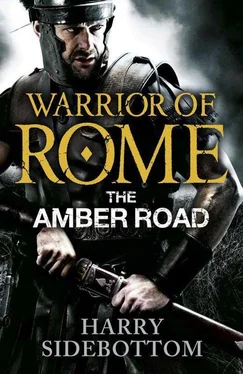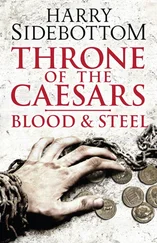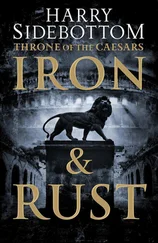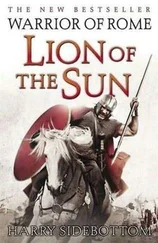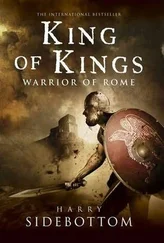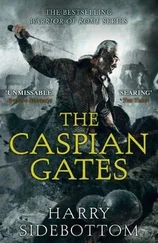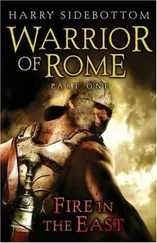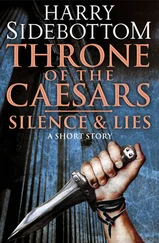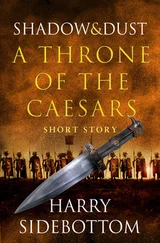Harry Sidebottom - The Amber Road
Здесь есть возможность читать онлайн «Harry Sidebottom - The Amber Road» весь текст электронной книги совершенно бесплатно (целиком полную версию без сокращений). В некоторых случаях можно слушать аудио, скачать через торрент в формате fb2 и присутствует краткое содержание. Год выпуска: 2013, ISBN: 2013, Издательство: Penguin Books Ltd, Жанр: Исторические приключения, на английском языке. Описание произведения, (предисловие) а так же отзывы посетителей доступны на портале библиотеки ЛибКат.
- Название:The Amber Road
- Автор:
- Издательство:Penguin Books Ltd
- Жанр:
- Год:2013
- ISBN:9780141935287
- Рейтинг книги:5 / 5. Голосов: 1
-
Избранное:Добавить в избранное
- Отзывы:
-
Ваша оценка:
- 100
- 1
- 2
- 3
- 4
- 5
The Amber Road: краткое содержание, описание и аннотация
Предлагаем к чтению аннотацию, описание, краткое содержание или предисловие (зависит от того, что написал сам автор книги «The Amber Road»). Если вы не нашли необходимую информацию о книге — напишите в комментариях, мы постараемся отыскать её.
The Amber Road — читать онлайн бесплатно полную книгу (весь текст) целиком
Ниже представлен текст книги, разбитый по страницам. Система сохранения места последней прочитанной страницы, позволяет с удобством читать онлайн бесплатно книгу «The Amber Road», без необходимости каждый раз заново искать на чём Вы остановились. Поставьте закладку, и сможете в любой момент перейти на страницу, на которой закончили чтение.
Интервал:
Закладка:
Harry Sidebottom
The Amber Road
Prologue I
Gallia Belgica, AD262
Afterwards, towns always wear the same scars.
It had been too easy, Starkad thought. In the long, long voyage, only one ship had gone missing. There had been no Roman patrol boats in the Gallic Channel, no watchers on the bluffs flanking the estuary. The fishermen’s huts where they beached the longboats had been deserted. Not a soul had disturbed them as they laid up the remaining hours of the day. Only their bulky shadows and a vixen about her own murderous business had made witness to their march inland in the treacherous starlight. The small market town of Augusta Ambianorum was unwalled. No geese had cackled, no dogs betrayed the approach. Neither call of nature nor providential deity had pulled a citizen from his slumber to raise the alarm. The sea wolves had ringed the town, a party on each road. When the atheling Arkil was satisfied, he had made the signal. The Angles had set about their rapine with practised enthusiasm and the zeal of men long at sea. After the incomprehensible suddenness of the onset of catastrophe, it had proved a long night for many of the wretched women of the town, all too short and final for some of their men.
In the dead, grey half-light before dawn Starkad stood near the ornamental gate and looked back down the main street to the forum. Unlike many of the warriors, he had neither raided into the imperium nor served in the Roman forces before. The buildings were unusual to him: bigger, squarer, made of stone with tiled roofs. Yet otherwise it could have been a settlement on Scadinavia or around the shores of the Suebian Sea. There were all the usual signs of a sacked town: the kicked-in doors, the casually smashed heirlooms, the weeping women, small children wailing, and here and there the splayed, humped dead. The smell of spilt alcohol, of vomit, excrement and blood; the rankness of unwashed men. Starkad thought only a man of no imagination could regard what he and his companions had wrought and not consider the implicit threat to his own family, to his own home.
Clumsy and bleary with fatigue and drink, the Angles were shuffling into a column of some one thousand along the wide street. The eorls who commanded the ships chaffed the duguth , and each of the latter did likewise to the ten warriors under them. All were well laden with plunder. They were not taking too many captives with them. These were divided into two groups, one of young women, the other of men of all ages. That night the former had experienced a foretaste of their fate. If the male captives knew what their future held, the cowards among them might envy the lot of the women.
The crewmen of Starkad’s longship were all present and in some form of order, drawn up roughly five abreast and ten deep. He told his friend Eomer, the duguo of one of the tent-groups of ten, to take over, keep them from more drinking, and he walked off to the head of the column.
Arkil was talking to two of the eorls . Like all the Himling dynasty, Arkil was tall, very broad-shouldered, with long, blond hair. Like all the Himlings, his arms were bright with gold. The atheling smiled at Starkad. One of the eorls spoke.
‘Your crew are still slower than mine,’ Wiglaf said.
Starkad shrugged.
‘He is still a puppy.’ Arkil’s tone was light.
‘Twenty-five winters, you could hope for more,’ Wiglaf replied. ‘I said he was too young to be one of the duguth , let alone an eorl .’
Starkad smiled in a way he hoped conveyed the gathering senility of his elders. A big man himself, he had some confidence in his own skill at arms and his ability to exact obedience. He did not bother to point out his men had been tasked with the rounding up of prisoners.
The chiefs of the other fifteen ships began to come up in ones or twos. Arkil had a few words with each eorl . It was not just stature Arkil had inherited. All the Himlings of Hedinsey had the gift of commanding men in war. It came naturally to them. They were Woden-born. Even Starkad’s stepfather, Oslac, quiet, studious man that he was, had led several successful expeditions in his youth. Starkad’s thoughts ran from Oslac to his mother, Kadlin, and from her to his father. He did not want to think about his father.
Starkad looked at the arch spanning the road. It was a gateway that could not be shut and that connected to no walls, a thing of elaborate impracticality. In the torchlight its relief carvings shifted: men heavily armed Roman-style or stark naked killed trousered warriors whose faces were grotesquely bearded, almost bestial. Why had the townsfolk commissioned such a monument? Presumably they identified with the Roman fighters and had forgotten that once they had been free men, before the legionaries had massacred their trouser-wearing forefathers, taken their weapons and made them pay taxes. Starkad had little but contempt for men who paid others to defend them.
‘It has all been too easy,’ Starkad said.
‘And you would know,’ Wiglaf said. Some of the older eorls laughed.
‘The boy might not be wrong.’ Arkil was known as a thoughtful man. ‘No one can tell what the Norns have spun. Great misfortune often follows hard on the heels of success. But Morcar and I spied out this place last year on our way back from the west. We were thorough. Morcar questioned the locals we caught. He did not spare himself.’
Everyone smiled; some wincing at the thought of the ingenious cruelty Arkil’s half-brother delighted in using. Not all the Himlings were gentle.
‘It is fifty miles to Rotomagus, the same to Samarobriva. There are no Roman troops nearer than Gesoriacum, and that is further by road and its harbour has few warships. There was no burning in last night’s work. No beacons have been seen. There is no time for a message to reach Gesoriacum and the soldiers to return before we are gone.’
The chiefs nodded at the sagacity of the atheling.
‘There is nothing at which the gods can complain. We have promised much to Ran that she will spare us her drowning net, and Woden will have the rest and much booty on our return.’
A low hooming of approval at the old, stern ways of blood ran through the leading men.
‘We have done what we can by gods and man,’ Arkil said. ‘Put out the torches. It is time to get back to the ships.’
Starkad walked back past the first three crews to his own men. Although sitting casually, some even prone, they were in rough marching formation. None was drinking more than might be expected. The roped captives were huddled in the street between them and the warriors of the next longboat. At Starkad’s command, his followers began to clamber to their feet. They extinguished the torches, hefted their weapons and plunder and shouted at the prisoners until they got up as well.
At home the old men said that until the reign of the cyning Hjar, just three generations before, the Angles had gone to war in no great order. They said the Angles had brought discipline back from fighting for the Romans on the distant banks of the Ister in their great wars against the Marcomanni. Starkad found it hard to imagine his people going into battle in a chaotic mass no better than the primitive and savage Scrithiphini or the Finni of the far north. But he had no reason to think either the old men or the travelling scops who came to the halls of the Himlings and sang the deeds of Hjar should lie.
A war horn sounded, and the column, somewhat unsteadily, bunching and surging, started forward.
The light was strengthening as Starkad emerged from the gate into the necropolis. Like all young well-born men at the court of Isangrim, a little Latin had been drummed into him. The cyning himself could speak the language fluently, and his son Oslac, Starkad’s stepfather, was noted for his unusual interest in the poetry of the imperium . Starkad knew what the Romans called their burial grounds, but the previous night the stars had been too dim and his apprehension too tight to take his first view of one. As its name implied, the necropolis was a veritable city of the dead. As well as many sculpted and inscribed gravestones and sarcophagi, some columns and a couple of miniature pyramids, there were lots of small houses for the deceased. They began as soon as the homes of the living ended, and flanked the road as far as could be seen in the gloom.
Читать дальшеИнтервал:
Закладка:
Похожие книги на «The Amber Road»
Представляем Вашему вниманию похожие книги на «The Amber Road» списком для выбора. Мы отобрали схожую по названию и смыслу литературу в надежде предоставить читателям больше вариантов отыскать новые, интересные, ещё непрочитанные произведения.
Обсуждение, отзывы о книге «The Amber Road» и просто собственные мнения читателей. Оставьте ваши комментарии, напишите, что Вы думаете о произведении, его смысле или главных героях. Укажите что конкретно понравилось, а что нет, и почему Вы так считаете.
